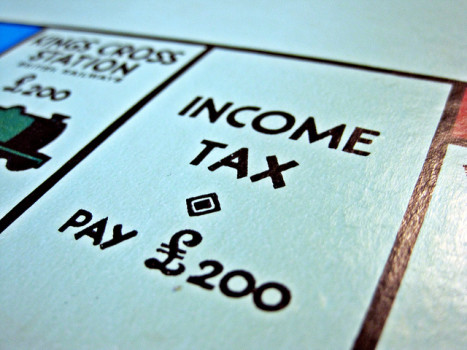Our relentless pursuit of income
Our entire lives we have been chasing income. It started with pocket money and paper rounds. We moved on to Saturday jobs and holiday jobs. We started to work and got our wage slips. We increased our income continually in our working lives. Wages became salaries. Jobs become careers and maybe even vocations.
Many also become landlords. They buy houses that they rent out. We earn rent which of course is taxed as income.
We look forward to retirement, to pension income from the state, income from personal pensions and income from occupational pension schemes.
Income, Income, Income, Income, Income, Income. You get the idea.
Eventually it seems a financial advisers job is solely to provide income from clients investments. One of the first questions an adviser asks potential clients is;
What are you looking for, Growth or Income?
I believe advisers have become short-sighted. Growth and Income should not be mutually exclusive targets. In fact most people in retirement shouldn’t be looking for income at all. They should be looking primarily for growth. Growth plus some income combined to provide a total return. Here’s why.
We pay income tax our entire lives
That’s a good thing. It suits our Government. We spend an awful lot of our time avoiding paying too much income tax. We employ accountants. There is a huge cash economy which solely exists to avoid paying tax.
Those who stay on the right side of the law invest into pensions and other tax beneficial investments like ISAs. But we don’t often step back and look at the alternative way of paying less income tax.
- We can earn around £10,000 per year before we start to pay income tax.
- We then pay 20% on everything we earn above £10,000, right the way up to around £42000.
- Above £42,000 the dreaded 40% tax kicks in
- For those fortunate enough to earn over £100,000, it gets even worse.
Yet, an individual can also earn a further £11,000 per year before they are taxed. But nobody actively chases this allowance and very few understand it.
Capital Gains Tax in a nutshell
Most things in life are not subject to capital gains tax. That’s why most individuals don’t ever think about it. The two most common exceptions are investment properties and of course shares.
The FTSE 100 index is a measure of how shares rise or fall. They enjoy capital gains or suffer capital losses. The index began in 1984, 30 years ago. It kicked off at 1000 and now stands at 6500. Over that time that’s a very large gain indeed. That 30 year time frame is the sort of period many of us will hopefully enjoy in an active retirement. On top of the capital gain, many shares pay a dividend on top, currently around 3.5% p.a.
The average client loses 20% tax on the dividend because most individuals already have at least £10,000 in income. Yet they would suffer no tax on a years gain of £11,000.
A typical example
£10,000 of income. £8,000 for you. £2,000 for the tax-man.
£10,000 of capital gain. £10,000 for you. £0 for the tax-man.
Simples!
Income, Income, Income, Income, Income, Income
Time to concentrate on growth

